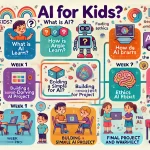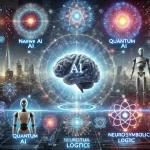
Transforming Healthcare with AI
December 18, 2024Introduction
Artificial Intelligence (AI) has emerged as a groundbreaking force in healthcare, driving innovation, enhancing patient care, and streamlining operations. By leveraging technologies like predictive analytics and decision support systems, AI is reshaping the delivery of healthcare services. This blog explores the significant role of AI in transforming patient care, focusing on its applications, challenges, and future potential.
AI in Healthcare: An Overview
AI technologies, such as machine learning and deep learning, are unlocking new possibilities in healthcare. By analyzing structured and unstructured data—ranging from electronic medical records to medical images—AI systems identify patterns and trends often undetectable by humans. These insights enable earlier diagnosis, effective treatment planning, and better resource allocation. AI-powered chatbots and virtual assistants are automating routine tasks, providing personalized health advice, and improving patient engagement, while AI-driven hospital management tools are optimizing workflows and resource utilization.
Despite these advancements, challenges such as data privacy concerns, algorithmic biases, and ethical dilemmas need to be addressed to ensure the safe and effective deployment of AI in healthcare.
Key Applications of AI in Healthcare
1. Predictive Analytics for Disease Prevention and Early Diagnosis
AI-powered predictive analytics play a critical role in identifying risk factors and patterns that help predict diseases such as diabetes, cardiovascular conditions, and certain cancers.
Impact:
- Early Detection: AI identifies potential health issues before they manifest, enabling timely interventions.
- Cost Savings: Preventative care reduces the need for costly and extensive treatments.
For instance, machine learning algorithms analyzing vast datasets can help clinicians foresee complications, enhancing disease management and improving patient outcomes.
2. Personalized Treatment Plans with Machine Learning
AI has revolutionized the concept of personalized medicine. Machine learning models consider patient-specific data, including genetics, medical history, and lifestyle, to design tailored treatment plans.
Benefits:
- Increased Treatment Efficacy: Patients receive therapies optimized for their unique needs.
- Reduced Side Effects: AI minimizes adverse reactions by aligning treatments with patient-specific factors.
This approach fosters better adherence to prescribed treatments, improving overall healthcare outcomes.
3. Enhancing Diagnostic Accuracy with Imaging AI
Medical imaging is one of the most promising areas of AI application. Algorithms trained on extensive datasets analyze X-rays, MRIs, and CT scans with remarkable precision.
Advantages:
- Faster Diagnoses: AI expedites the diagnostic process by quickly identifying anomalies.
- Improved Decision-Making: Enhanced imaging accuracy helps clinicians make informed decisions.
For example, AI can detect early signs of conditions such as cancers or fractures that may be missed during manual evaluations, enhancing patient care quality.
4. Streamlining Workflows with Decision Support Systems
AI-driven decision support systems (DSS) are improving healthcare workflows by offering real-time insights and evidence-based recommendations.
Key Outcomes:
- Efficiency Gains: DSS automate routine clinical processes, allowing healthcare professionals to focus on complex cases.
- Higher Care Quality: Real-time insights align with clinical guidelines, ensuring accurate and consistent decision-making.
These systems bridge the gap between clinical data and actionable care strategies, ensuring that patient outcomes are prioritized.
5. Remote Patient Monitoring and Proactive Healthcare
AI enables healthcare providers to monitor patients remotely, using real-time data to predict and address health issues before they escalate.
Notable Impacts:
- Proactive Interventions: Early alerts for health anomalies prevent complications.
- Cost Reductions: Decreased hospital readmissions translate to financial savings for both providers and patients.
Wearable devices integrated with AI can track vital signs, empowering providers with actionable data to enhance patient safety and satisfaction.
Challenges and Ethical Considerations
While AI offers tremendous benefits, several challenges must be addressed:
- Data Privacy: Ensuring secure handling of sensitive patient information is critical.
- Algorithmic Biases: AI models trained on biased datasets may perpetuate inequalities.
- Regulatory Frameworks: Comprehensive regulations are required to guide ethical AI deployment.
Striking a balance between innovation and ethical considerations is essential for building trust and fostering equitable healthcare systems.
Case Studies and Real-World Applications
- Disease Prevention: AI analytics predicted cardiovascular risks in a clinical study, enabling lifestyle interventions that reduced disease prevalence by 25%.
- Personalized Medicine: A hospital using AI-guided treatment plans saw a 30% increase in patient recovery rates.
- Diagnostic Imaging: AI reduced diagnostic errors in breast cancer screenings by 15%, improving early detection rates.
These examples underscore the transformative potential of AI in healthcare.
Conclusion
AI is revolutionizing healthcare delivery, offering unprecedented capabilities in predictive analytics, personalized treatment, diagnostic imaging, and more. As the field continues to evolve, addressing challenges related to data privacy, ethical considerations, and regulatory oversight will be pivotal. By embracing these innovations responsibly, we can unlock the full potential of AI to enhance patient outcomes, optimize healthcare systems, and shape the future of medicine.
Artificial Intelligence is not just a tool; it is a partner in reimagining the possibilities of healthcare, creating a future where precision, efficiency, and empathy converge.


















